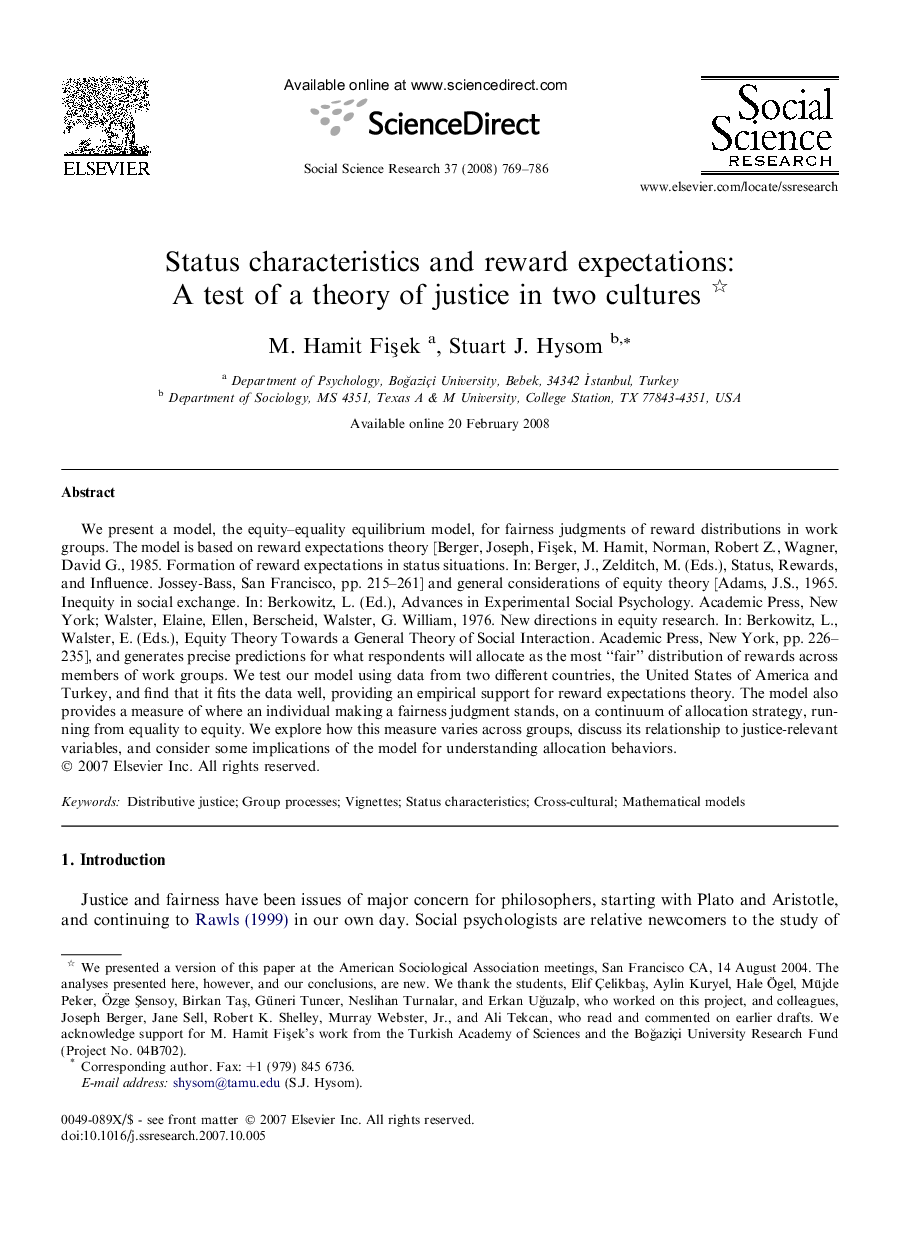| Article ID | Journal | Published Year | Pages | File Type |
|---|---|---|---|---|
| 956413 | Social Science Research | 2008 | 18 Pages |
We present a model, the equity–equality equilibrium model, for fairness judgments of reward distributions in work groups. The model is based on reward expectations theory [Berger, Joseph, Fişek, M. Hamit, Norman, Robert Z., Wagner, David G., 1985. Formation of reward expectations in status situations. In: Berger, J., Zelditch, M. (Eds.), Status, Rewards, and Influence. Jossey-Bass, San Francisco, pp. 215–261] and general considerations of equity theory [Adams, J.S., 1965. Inequity in social exchange. In: Berkowitz, L. (Ed.), Advances in Experimental Social Psychology. Academic Press, New York; Walster, Elaine, Ellen, Berscheid, Walster, G. William, 1976. New directions in equity research. In: Berkowitz, L., Walster, E. (Eds.), Equity Theory Towards a General Theory of Social Interaction. Academic Press, New York, pp. 226–235], and generates precise predictions for what respondents will allocate as the most “fair” distribution of rewards across members of work groups. We test our model using data from two different countries, the United States of America and Turkey, and find that it fits the data well, providing an empirical support for reward expectations theory. The model also provides a measure of where an individual making a fairness judgment stands, on a continuum of allocation strategy, running from equality to equity. We explore how this measure varies across groups, discuss its relationship to justice-relevant variables, and consider some implications of the model for understanding allocation behaviors.
